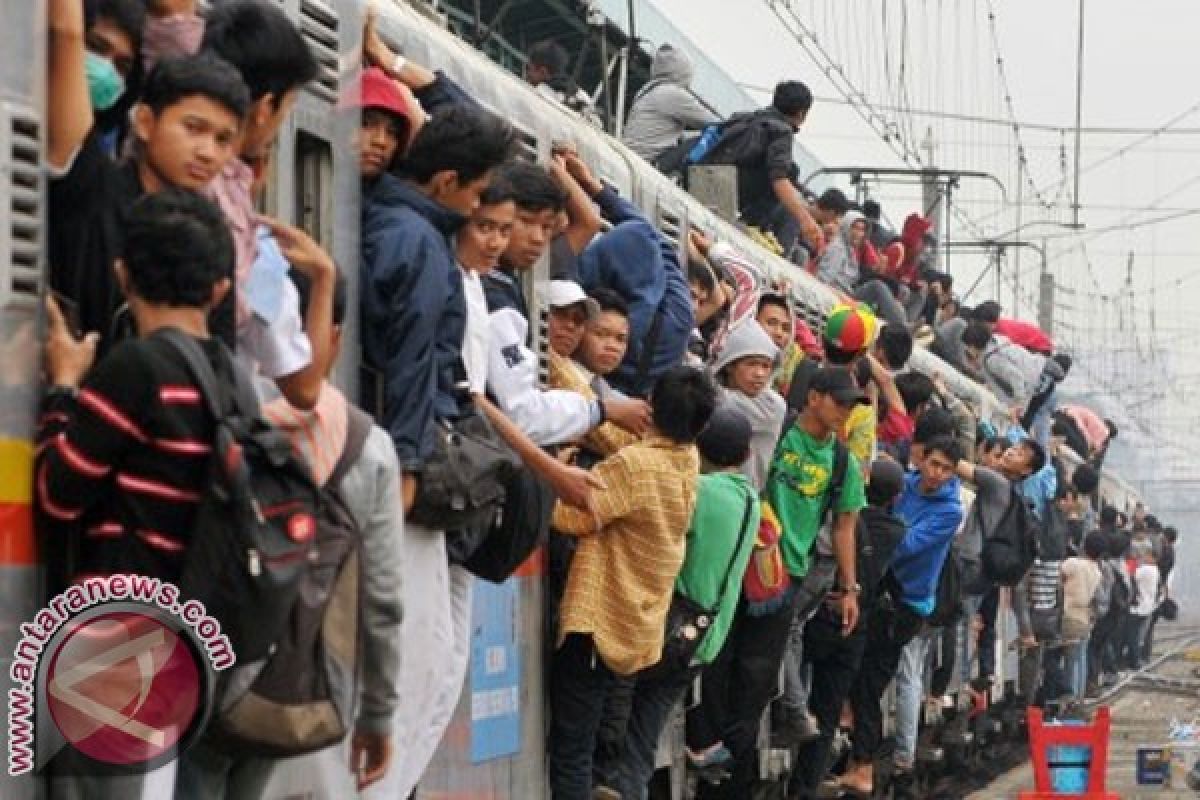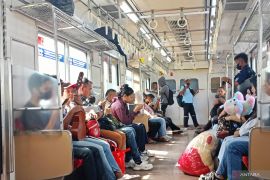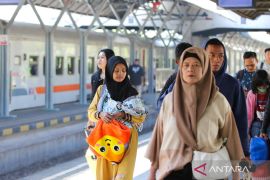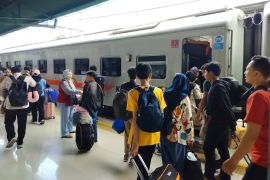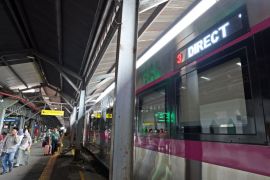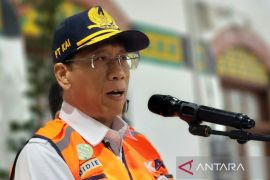the "zero accident" target is a responsibility and is not negotiable so that no more lives would be lost because of a train accident, the company`s President Director Ignatius Jonan said.Jakarta (ANTARA News) - State-owned railway company PT KAI is continuing to improve its service to achieve a zero accident target in view of the importance of passengers` safety.
"Our efforts to achieve the zero accident target will continuously be improved, because passengers` safety is above all," said the company`s President Director Ignatius Jonan in his speech at the "Safety Railways Indonesia 2013" seminar here Tuesday.
Jonan said achieving the "zero accident" target is a responsibility and is not negotiable so that no more lives would be lost because of a train accident.
He admitted that in fact railway safety is not entirely the responsibility of the railway company, but also passengers including those interacting with train service.
"The train could operate normally but interruptions often occur around train crossings. So, safety is the responsibility of all stakeholders," said Jonan.
Therefore, the zero accident target must be popularized among community members.
Jonan added that railway safety standards are different from flight safety standards which refer to the International Civil Aviation Organization (ICAO).
"Aviation has already had complete international standard but because train operations in Indonesia are still domestically-based, we are trying to collect references from other countries to set the safety standard," said Jonan.
Meanwhile, secretary to the director general of railways of the ministry of transportation, Nugroho Indrio, said that the national railway transport system is expected to be the backbone of freight and urban passenger transportation and became a major driver of the national economy.
"Implementation of the national railway transport system integrated with other modes of transportation is expected to be able to improve efficiency," said Nugroho.
Therefore central and local governments` participation in railway operations is also needed including local government`s involvement in the planning process with regard to spatial planning and land availability, Nugroho added.
Their involvement is also needed in both inter-city and urban railway investment, construction and operation while local industries also need to be developed to meet the needs of railway industry.(*)
Editor: Heru Purwanto
Copyright © ANTARA 2013
